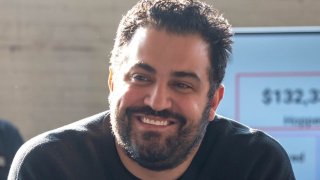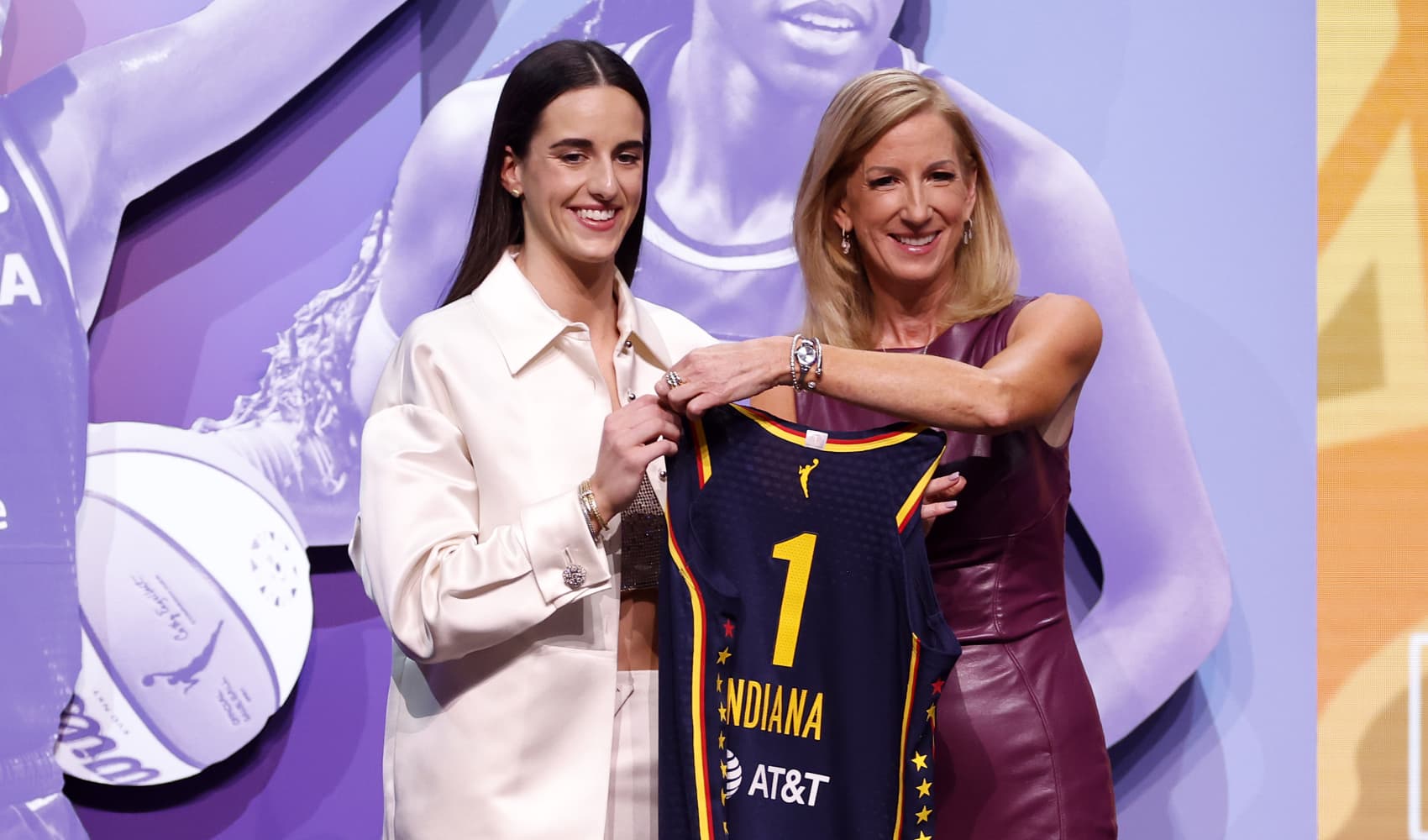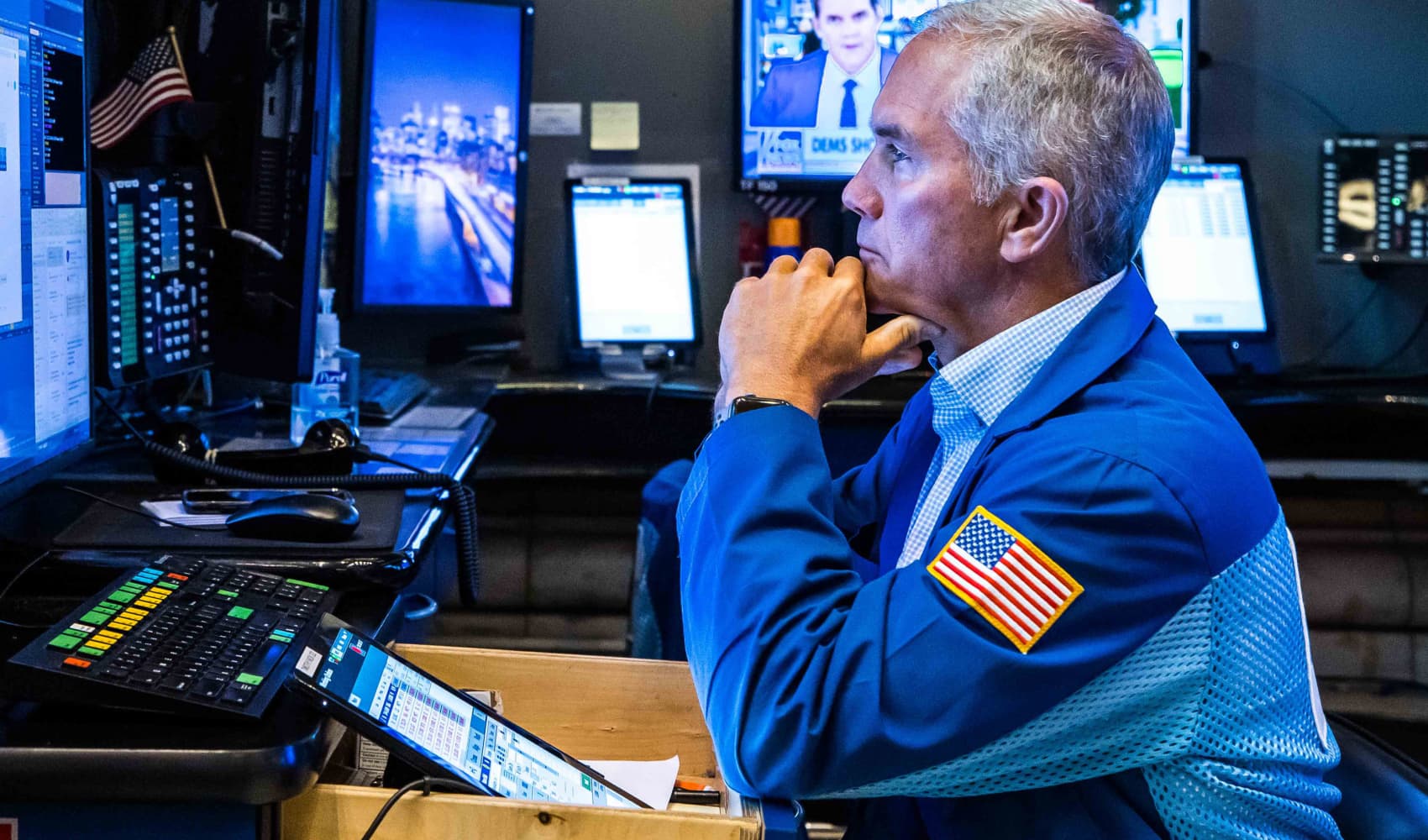
This story is part of the Behind the Desk series where CNBC Make It gets personal with successful business executives to find out everything from how they got to where they are to what makes them get out of bed in the morning to their daily routines.
As the co-founder and CEO of the popular app Cameo — which allows fans to pay celebrities to make personalized video messages for them — Steven Galanis has big plans.
"Our goal at Cameo is to become a publicly traded company most likely in the next 18 to 36 months," Galanis tells CNBC Make It.
Business has exploded amid the Covid-19 pandemic, he says.
Get Philly local news, weather forecasts, sports and entertainment stories to your inbox. Sign up for NBC Philadelphia newsletters.
The app, which launched in 2017, has grown its library of celebrities (think Snoop Dogg, NFL legend Drew Brees Kevin O'Leary and Steve Harvey) to over 40,000. In 2020, the business reached a milestone of two million downloads, 1.3 million Cameos recorded, and pulled in $100 million in sales (75% of which went to Cameo talent), according to the company.
Baron App, Cameo's parent company, is now valued at $1 billion after raising $100 million in funding from new investors like SoftBank Group Corp's Vision Fund, professional skateboarder Tony Hawk and Alphabet Inc., The Wall Street Journal recently reported.
Galanis, a former trader and LinkedIn account executive, is also managing a new staff size of about 200 employees remotely.
Money Report
"This is my first time ever managing people," Galanis says. "The business has scaled so quickly. We've gone from zero to 100 million in bookings in four years. And I'm doing this for the first time, so now I have C-level executives that work for me that have 25 years experience."
Here, Galanis talks to CNBC Make It about how his talent for bringing people together led to Cameo, what he's learning on the job and why keeping his calendar on pacific time (even though he lives on the East Coast) helps him thrive.
On childhood dreams: 'My nickname since kindergarten has been The Mayor'
I think anyone that knew me growing up or from my days at Duke [University] or my trading days is not surprised at all that this is the business that I ended up starting. My nickname since kindergarten has been "the mayor." I'm someone who just likes to bring people together.
I grew up in the suburbs of Chicago. I was an athlete. I played a lot of different sports but also did things like debate and student government in high school.
I always grew up dreaming to be a trader because in Chicago that's what most of my friends' most successful parents were. I had a weird dream as a 21-year-old to be the last great open outcry options trader in Chicago, which is an absurd dream. Looking back on it, no tech entrepreneur thinks they're going to be the last great tech entrepreneur.
On being a serial entrepreneur: In college, I 'started all types of businesses'
At Duke, I actually started my first entrepreneurial venture, called Spartan Entertainment.
This was the early days of Facebook, when only college students could be on the network. In my four years in college, I aggregated a Facebook group with 17,000 college students and through that [Spartan] started all types of businesses like a college moving service, we had a restaurant at one time and a T-shirt company.
This is the first time I learned that if you could aggregate a bunch of people and show them value for one thing, you could continue to find the value [in]doing other things.
On working at LinkedIn: 'Everyone has a growth mindset'
The culture when I was trading [from 2011 to 2014] was that every single person was talking about how great things used to be and how sh---y things were now.
But when I got to LinkedIn, it was the opposite. Everyone was talking about how great the future could be and everyone has a growth mindset as opposed to the fixed mindset that I found while I was trading.
For me, it was so stimulating. I ended up having the idea for Cameo near the end of my tenure at LinkedIn.
On having the idea for Cameo: It was 'at my grandmother's funeral, of all places'
I was at my grandmother's funeral, of all places, and my now co-founder, Martin [Blencowe], had flown in for the day. He was an NFL agent at the time and had a client... a backup player [for the Seahawks], and he was desperate to find a way to make this guy additional money. He told me that he really felt like this person had the opportunity to be a massive personality, like maybe he could be the next Rock [aka Dwayne Johnson].
Martin pulled out his phone and showed me a video where this player, Cassius Marsh, was congratulating [someone on Nike's marketing team] on becoming a father, and saying that when the baby grew up, maybe he could play for the Seahawks one day. And that was immediately just this magical moment, like the light bulb went off.
I took a flight to L.A. the next day and that started the journey that would become Cameo.
On his routine: I live in Miami but 'have my calendar on Pacific time'
I actually have my calendar on Pacific time all the time, even though I live in Miami now. My day really starts at 9 a.m. Pacific time, so that gives me kind of the creative spontaneity time in the mornings. Additionally, I try to meet with staff, my reports, every single day. We're a fully distributed company (which means all of its employees work remotely) and will be even after the pandemic.
The meetings have different themes. On Mondays, it's HR and legal, so recruiting. Every Tuesday is product, and every Wednesday is our talent teams, so celebrities coming on. Thursdays are finance and analytics, and Friday is marketing.
I think bringing everyone together to talk about the same thing every day of the week has been a really good way to keep everyone involved in every part of the business.
On mistakes: 'I don't think there's anything inherently valuable' about them
I make mistakes every day. I don't think there's anything inherently valuable about making mistakes. But what is really valuable is quickly fixing the mistakes that you made.
The mistakes that I think about the most actually have to do with hiring the wrong people. If somebody is not the right fit for the job, for our culture, I think I've gotten pretty good at identifying it early and getting them out and getting the right person in as quickly as possible.
The business has scaled so quickly. We've gone from zero to 100 million in bookings in four years. And I'm doing this for the first time, so now I have C-level executives that work for me that have 25 years of experience.
This is my first time ever managing people. As a founder and CEO, you have to be growing faster than the pace of the business and when you have a business that is growing like triple digits on a year-over-year basis, your personal growth has to be the same.
I try to surround myself with people better than me. I've been saying to everyone and my staff for years that I know I'm doing a good job at Cameo when I'm the worst person that works at the company.
This interview was conducted in February and has been edited for length and clarity.
Don't miss more Behind the Desk:
ADL CEO Jonathan Greenblatt on ending hate: You have to 'change hearts and minds'
A-Rod Corp CEO Alex Rodriguez on his life and career: 'It's an imperfect story'
CEO Wynne Nowland on coming out as transgender: 'I'm much more at peace with myself'






